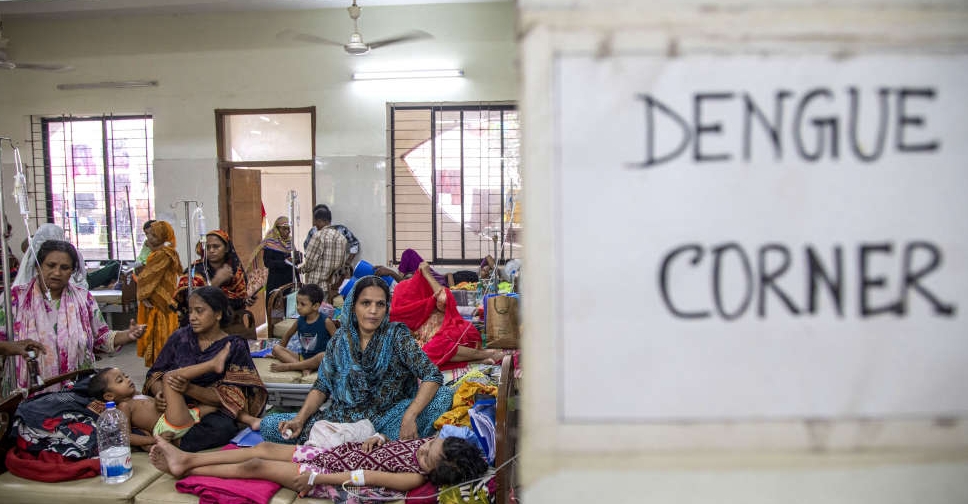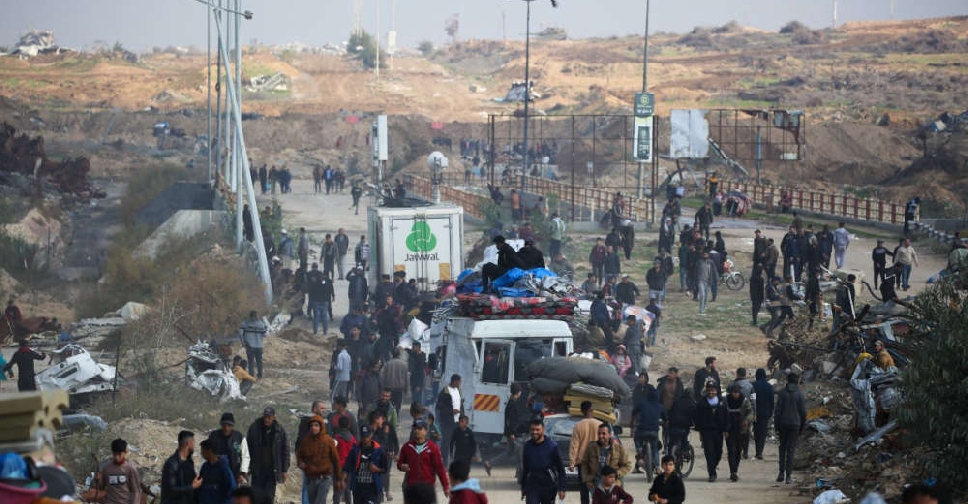
Bangladesh is battling its worst outbreak of dengue in years, with more than 400 deaths, as rising temperatures and a longer monsoon season drive a surge in infections, leaving hospitals struggling to cope, particularly in urban areas.
At least 407 people have died from related complications in 2024, with 78,595 patients admitted to hospital nationwide, the latest official figures show.
By mid-November, 4,173 patients were being treated, with 1,835 of them in Dhaka, the capital, and 2,338 elsewhere.
"We’re witnessing monsoon-like rainfall even in October, which is unusual," said Kabirul Bashar, a zoology professor at Jahangirnagar University.
Shifting weather patterns caused by climate change provided optimal conditions for the Aedes aegypti mosquito, the primary carrier of the disease, he added.
"These changes in the season are fostering ideal conditions for the mosquitoes to breed."
Dense populations in cities exacerbate the spread of the disease, usually more common in the monsoon season from June to September though it has spilled beyond that window this year.
A rise in temperatures and longer monsoons, both linked to climate change, have caused a spike in mosquito breeding, driving the rapid spread of the virus.
Bashar called for year-round vector surveillance in Bangladesh to monitor and rein in the disease.
If detected early and treated properly, deaths from dengue can be reduced to less than 1%, said a renowned physician, Dr ABM Abdullah, adding, "Early diagnosis and prevention are key to controlling dengue."
Last year was the deadliest on record in the current crisis, with 1,705 deaths and more than 321,000 infections reported.
The growing frequency and severity of outbreaks strains Bangladesh’s already overwhelmed healthcare system, as hospitals battle to treat thousands of patients.
Health officials have urged precautions against mosquito bites, such as mosquito repellents and bed nets, while experts want tougher measures to eliminate the stagnant waters where mosquitoes breed.
Delays in seeking treatment, particularly among rural populations who must travel long distances to specialised facilities in Dhaka, are swelling the toll, doctors said.
The disease can often show only mild initial symptoms that go undiagnosed until patients are critical.


 More than seven killed in stampede at India's Maha Kumbh festival
More than seven killed in stampede at India's Maha Kumbh festival
 Plane catches fire at Busan airport in South Korea
Plane catches fire at Busan airport in South Korea
 Indian state studies plan to ban petrol, diesel vehicles in Mumbai
Indian state studies plan to ban petrol, diesel vehicles in Mumbai
 Gaza residents stream home to the north after hostage breakthrough
Gaza residents stream home to the north after hostage breakthrough
 Russian drone attacks in Ukraine injure 8, damage residences
Russian drone attacks in Ukraine injure 8, damage residences







